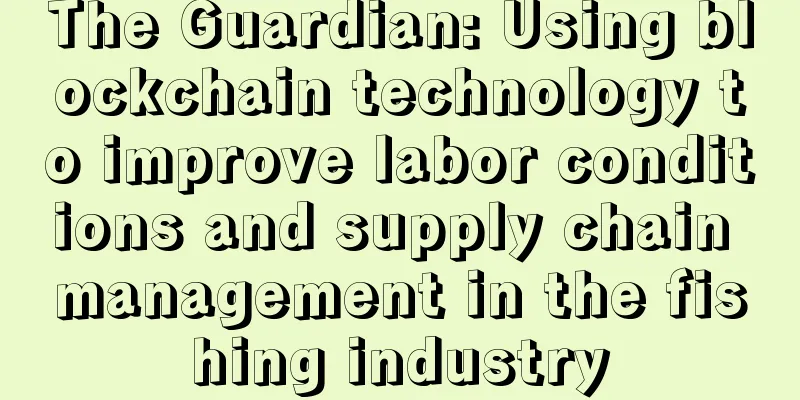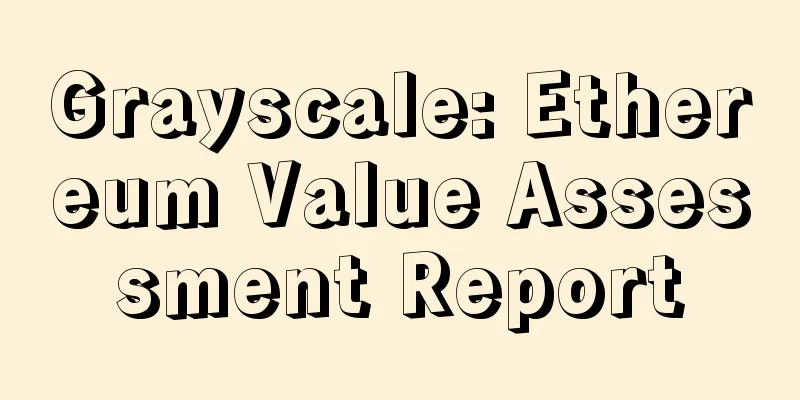The Guardian: Using blockchain technology to improve labor conditions and supply chain management in the fishing industry

|
Rage Review : British blockchain startup Provenance is committed to supply chain management solutions to ensure the transparency and safety of food sources. Fisheries are also an industry rife with illegal activities and slavery. Therefore, industry participants hope to use blockchain technology to solve these long-standing problems and completely eradicate this drawback. Ensure the sustainable development of fisheries, the safety of fish products, and the legal rights of workers. Currently, Provenance is still the most well-known company in the field of food supply chain management and has cooperated with many companies. Translation: Annie_Xu A new digital technology is being used to track seafood from catch to market in an effort to stop copyright infringement and illegal fishing. This new technology is blockchain. This technology, which was first applied to Bitcoin, is expected to transform the financial industry, property rights field, and food industry, replacing traditional contracts, paperwork, and verification methods. Blockchain is a digital ledger or information record that is open to everyone. The blockchain here can mark the source of fish, so that anyone can know where the fish was caught, where it was processed, and other important information. Blockchain itself cannot prevent illegal fishing, but it allows everyone to see the entire supply chain. The seafood industry has long been rife with human rights violations and illegal fishing, and practitioners hope that a blockchain pilot project by British company Provenance can help retailers, manufacturers and restaurants prove the origin of these fish products. Steve Trent Steve Trent, Executive Director of the Environmental Justice Foundation (EJF), said:
Currently, the sale and purchase of seafood is tracked using paper records and food labels. Blockchain allows local fishermen to record the fishing process on the blockchain through mobile phone information. This record is then sent to suppliers, and then records the subsequent processing procedures, such as packaging. End users and consumers can use their mobile phones to check the origin of fish products and the entire supply chain in stores and restaurants, replacing existing text communications and labels. This technology has also attracted the attention of food companies. Co-op Food has begun working with Provenance to apply blockchain to new fresh food project tests, which is expected to be completed by the end of the year. Jessi Baker, founder of Provenance, said that blockchain will increase the cost of finished food products, so it may first be applied to high-quality fish products, or even red wine and olive oil. The premise of adopting this technology for canned and processed fish products is to reduce costs.
Thai Union, the world's largest tuna exporter, has also welcomed the project after facing criticism over the sustainability of its fisheries. In July, Tesco stopped buying John West brand tuna in the hope that the company could prove it was using sustainable sources. Dr Darian McBain Dr Darian McBain, Head of Sustainability at Thai Union, said:
Trent warned that blockchain technology alone cannot stop illegal activity in the fishing industry. “Other actions and mechanisms must be understood and supported to combat illegal activity, including providing effective enforcement and strong, fair, transparent, rigorous courts.” |
<<: There is not much market for anonymity in digital currency
>>: Bitcoin price approaches 4200, traders are generally bullish
Recommend
Does a short lifeline mean you won’t live long?
Life has always been a word with a broad meaning ...
What kind of man has a bad face?
A good face will help our overall fortune, while ...
Worldcoin, the world currency, is caught in a fraud scandal
The project called Worldcoin outlined a grand vis...
The clarion call of the "smart revolution" has sounded. Can blockchain and the Internet of Things become powerful weapons to boost the development of the real economy?
Ordinary people may not have a clear idea of th...
Does a man with a mole in his palace of official career have good career luck?
For men, power is still very important. Most wome...
What kind of man is the most attractive and worth marrying?
What kind of man is the most attractive? Every ma...
The fate of a woman with half eyebrows The face analysis of a woman with half eyebrows
Is there a good fate for a woman with half an eye...
Is it good for a woman to have vertical lines in her eyebrows after she turns 40? What do vertical lines in the eyebrows mean?
From the perspective of physiognomy, the area bet...
11 Bitcoin Startups That Went Bankrupt in 2015
This year has been a year of further development ...
Is it good to have scars on your face?
There are both congenital and acquired moles and ...
IBM to invest more in Bitcoin technology
IBM is becoming the biggest backer of technology ...
What is the future of “cryptocurrency investors”?
A few days ago, a reader left a message and menti...
The face that is most likely to stab others in the back
For each of us, the most terrifying thing is to e...
Bitcoin prices fluctuated slightly, but on-chain indicators were positive, and central banks said they would take more action -
After a massive sell-off in March, Bitcoin prices...
How to tell what kind of people can't have a happy marriage?
Marriage is very important to everyone, and every...









